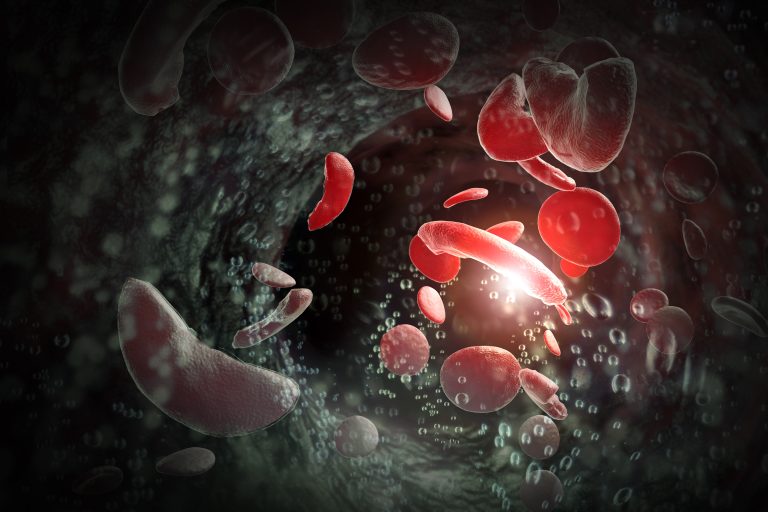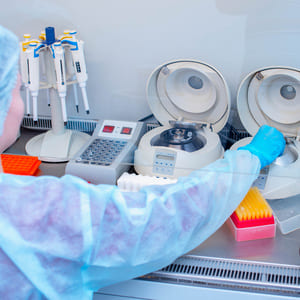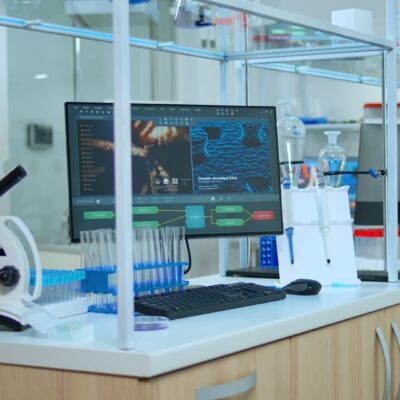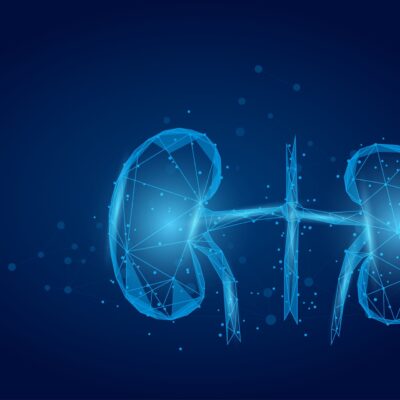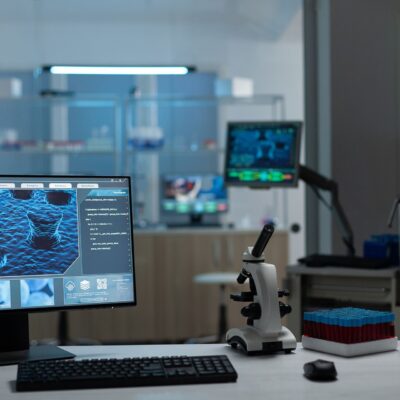Central to this is appreciating the role of clinical trials, which are the linchpin of medical advancement in these sectors. In this post, we’ll explore these subjects and their interplay, highlighting the crucial part that pioneering research plays in improving patient outcomes.
What is Hematology Oncology?
Hematology Oncology represents an intricate subspecialty of medicine that intertwines two related fields: hematology, which revolves around the study of blood, blood-forming organs, and blood diseases, and oncology, the domain dedicated to the understanding, diagnosis, and treatment of cancer. Specialists within this field are known as hematologist-oncologists and are adept at managing a wide array of disorders affecting blood cells, bone marrow, lymph nodes, and the spleen — organs essential in nurturing and protecting our body’s complex circulatory system.
Hematology: a pillar of hematology oncology
Delving deeper into hematology, one finds it encompasses the scrutiny of various components and aspects of blood such as red blood cells (erythrocytes) that carry oxygen to tissues, white blood cells (leukocytes) that are essential for our immune defence, and platelets that facilitate blood clotting and wound repair. This area of medicine is pivotal in diagnosing and treating conditions like anemia, clotting disorders, sickle cell disease, and hematological malignancies including leukemia and lymphoma.
Oncology: the cancer-focused counterpart
On the other side, oncology zeroes in on the management of cancer, a group of diseases characterized by uncontrolled cell growth and spread to other parts of the body. Hematologist-oncologists specialize in treating cancers that originate in the blood and lymphatic system, such as leukemia, lymphoma, and myeloma. They are not only concerned with eradicating the cancer cells but also with mitigating the side effects of treatment and ensuring the overall wellness of the patient.
Bridging both hematology and oncology, hematologist-oncologists offer a dual approach. They craft individualized treatment plans that may combine chemotherapy, radiation therapy, biological therapy, and hematopoietic stem cell transplant, among others. These dedicated medical experts collaborate closely with a multidisciplinary team including radiologists, pathologists, and surgeons to provide comprehensive care tailored to the specific needs of each patient.

How are Oncology and Hematology related?
Oncology and hematology are medical specialties that, at first glance, might seem quite distinct from one another. However, they are inextricably linked through their focus on the study, diagnosis, treatment, and prevention of diseases that involve blood and cancer.
The Interconnection between Oncology and Hematology
Oncology is the branch of medicine dealing specifically with cancer. Physicians who specialize in oncology, known as oncologists, are experts in managing patients with malignant diseases—those conditions which, left unchecked, can lead to serious illness or death. Cancer can occur in various forms and at any place within the body.
Meanwhile, hematology focuses on disorders of the blood and blood-forming organs, such as anemia, bleeding disorders like hemophilia, and blood cancers. Hematologists are specialists who may deal with a range of problems from benign (non-cancerous) conditions like iron-deficiency anemia to more serious diseases such as leukemia.
The intersection of oncology and hematology is most visible when it comes to blood cancers. These types of cancer affect the production and function of your blood cells and include leukemia, lymphoma, and multiple myeloma. While oncologists could deal with these as part of the broader cancer spectrum, hematology’s specific focus on blood and blood-forming organs makes hematologists also highly specialized in these areas, often leading to roles such as hematologic oncologists.
In the treatment of blood cancers and other malignant diseases that affect the blood, hematologists and oncologists often work together in a multi-disciplinary team. This team approach ensures that patients receive the benefit of wide-ranging expertise, combining oncology’s experience with chemotherapy, radiation, and surgery with hematology’s deep understanding of blood disorders and treatments such as stem cell transplants.
Innovations in Oncology and Haematology from clinical trials
Oncology and haematology are at the forefront of medical breakthroughs, thanks in large part to rigorous clinical trials that provide a wealth of data and insight into the treatment of cancers and blood disorders. At the heart of these medical fields, a fervent quest to understand and defeat some of the most complex diseases is continually pushing the boundaries of what is possible in medicine.
One of the most significant advances has been in the development of targeted therapies. These treatments hone in on specific genetic or molecular markers that are part of the cancer process, sparing normal, healthy cells and reducing side effects. Monoclonal antibodies, for example, are tailor-made to bind to specific proteins on cancer cells, marking them for destruction by the body’s immune system or disrupting their growth.
CAR T-cell Therapy
Within this sphere, chimeric antigen receptor (CAR) T-cell therapy has emerged as a revolutionary treatment, particularly for certain types of haematological malignancies such as refractory B-cell lymphomas. CAR T-cell therapy involves genetically modifying a patient’s own T-cells to recognize and attack cancer cells. Brought to public attention through clinical trials that showcased remarkable remission rates, this valiant stride has now been adopted in regular clinical practices and continues to evolve with ongoing research.
Precision Oncology
Precision oncology has become a more common terminology in the realm of cancer treatment. Here, advancements in sequencing technologies from clinical trials have provided a pivotal base for precision medicine, allowing bespoke therapeutic regimens that are tailored to the individual genomic makeup of a patient’s tumor. These approaches have been instrumental in the treatment of various cancers, such as lung cancer and melanoma, where specific mutations may determine the course of therapy.
Liquid Biopsies
An offshoot of precision oncology that has gained traction is the liquid biopsy, a minimally invasive test that can detect and monitor cancer through the presence of circulating tumor DNA (ctDNA) in the blood. This innovative approach, developed from the insights of numerous trials, enables the early detection of cancer recurrence and offers a real-time snapshot of the tumor’s genetic landscape, guiding adjustments to treatment as the cancer evolves.
Advances in Haemopoietic Stem Cell Transplantation
In the field of haematology, improvements in haemopoietic stem cell transplantation (HSCT) are noteworthy. This life-saving procedure, used to treat a variety of malignant and non-malignant blood disorders, has been fine-tuned to reduce complications and increase success rates. Innovations such as better tissue typing, improved supportive care, and the use of reduced-intensity conditioning regimens have all taken stem from the learnings of clinical trials, optimizing outcomes for patients.

The significance of Oncology and Hematology in clinical trials
Oncology and hematology are two of the most intensive and rapidly evolving areas in clinical trials, significantly transforming patient outcomes and leading to groundbreaking discoveries. Here, we delve into why these fields are crucial to clinical research and how they contribute to medical advancements.
Oncology: pioneering cancer treatment through research
Oncology, the branch of medicine that specialises in the study and treatment of cancer, represents a beacon of hope as it paves the way for novel therapies through clinical trials. Given the complex nature of cancer, which encompasses over 100 different diseases, the importance of oncology trials cannot be overstated. These trials are essential platforms for testing new treatments, from chemotherapy and radiotherapy to targeted therapies and immunotherapies.
The integral components of oncology clinical trials include:
– Patient Selection: Careful selection of participants based on specific genetic markers or disease characteristics can lead to more personalized and effective treatments.
– Innovative Therapeutics: The development of new drugs and treatment strategies is at the heart of oncology trials, helping patients combat various cancer types by targeting malignant cells with precision.
– Advancements in Immunotherapy: Through clinical research, immunotherapy has emerged as a revolutionary approach that empowers the immune system to recognise and fight cancer cells, offering a new lifeline to many patients.
– Biomarkers and Personalised Medicine: Identifying biomarkers that predict responses to treatment is a key focus, leading to personalised medicine where therapy is tailored to the individual’s genetic makeup.
Hematology: advancing the science of blood disorders
Parallel to oncology, hematology focuses on the study of blood, blood-forming organs, and blood diseases. Clinical trials in hematology are indispensable in discovering new treatments and understanding various blood disorders, including anemia, clotting disorders, and hematological malignancies like leukemia and lymphoma.
Clinical trials in hematology typically emphasise:
– Stem Cell Research: Stem cell transplants are a cornerstone treatment for many blood disorders. Trials are continually refining transplant techniques and protocols to improve success rates and reduce complications.
– Gene Therapy: Cutting-edge hematology trials explore gene therapy as a potential cure for genetic blood disorders, such as sickle cell disease and thalassemia.
– Novel Anticoagulants: The development of new anticoagulant drugs through clinical trials aims to prevent and treat blood clots with fewer side effects than traditional medications.
– Enhanced Diagnostic Tools: Hematology trials also focus on improving diagnostic technologies, leading to earlier detection and treatment of blood-related diseases.
Oncology and hematology clinical trials are the cornerstone upon which modern treatment protocols are built. They offer patients access to new treatments that have yet to be widely available, often with the potential for better outcomes. Importantly, these trials





